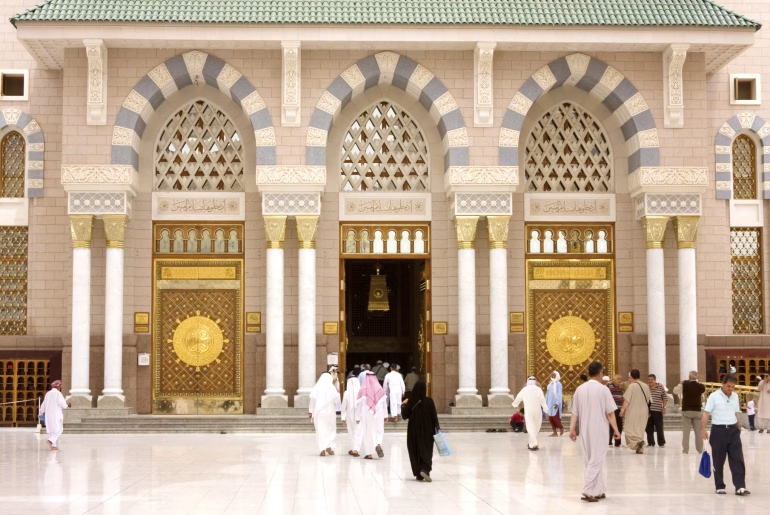It is noted that in his alleged “reply” to our summary of the Biblical Prophets’ experiences in their encounter with the Divine presence, the missionary had made the arrogant claim that :
It is rather evident that NONE of these prophets’ experiences are even remotely similar with Muhammad’s traumatic experiences…
However, the missionary emphasis on the word “NONE” is amusing in its travesty, especially when examined in light of the following quotations from the following Orientalists who attested that “Muhammad’s traumatic experiences” (the words of the missionary, not our own) are strikingly similar to the Biblical prophets. Emphasis in these quotations are our own.
See : “Epileptic Symptoms” In The Biblical Prophets ?
ALFRED GUILLAUME
The outward marks of a prophet in Israel were (a) impassioned utterance ; (b) poetry ; (c) intense preoccupation with God and moral issues ; (d) a sense of compulsion urging him to declare the will of God. Naturally these characteristics varied from prophet to prophet : in some of the later prophets the feeling of excitement, the inner urge which bursts as it were the bounds of language, and the idealism are altogether lacking ; but the broad pattern is consistent. How far then is it possible to say that Muhammad was a prophet ?
Now if we look at the accounts of his call, as recorded by the early biographers, some very interesting parallels with the Hebrew prophets come to light. They say that it was his habit to leave the haunts of men and retire to the mountains to give himself up to prayer and meditation. One night as he was asleep the angel Gabriel came to him with a piece of silk brocade whereon words were written, and said ‘Recite!’ He answered, ‘What shall I recite?’ The order was repeated three times, while he felt continually increasing physical pressure, until the angel said :
Recite in the name of thy Lord who created Man from blood coagulated. Recite ! Thy Lord is wondrous kind Who by the pen has taught mankind Things they knew not (being blind).
When he woke these words seemed to be written on his heart (or, as we should say, impressed indelibly on his mind). Then the thought came to him that he must be a sha’ir (literally ‘knowers’) or possessed, he who had so hated such people that he could not bear the sight of them ; and he could not tolerate the thought that his tribesmen would regard him as one of them — as in fact they afterwards did. Thereupon he left the place with the intention of throwing himself over a precipice. But while on his way he heard a voice from heaven hailing him as the Apostle of God, and lifting up his eye he saw a figure astride the horizon which turned him from his purpose and kept him rooted to the spot. And there he remained long after his anxious wife’s messengers had returned to report that they could not find him.
Clearly this story belongs to the realm of visions and dreams. Whatever view is taken of their objective reality, none can doubt their subjective reality to those who experience them. This inaugural vision so affected Muhammad’s preaching — at any rate in its early stages — and Muhammad himself, that it is possible to believe that he was a prophet. The burden of Muhammad’s message from first to last was the almighty power of God and man’s duty to obey him, of sin and judgment. The sense of compulsion under which he labored is clearly brought out in the dream in which the angel forced him to speak. Some of his biographers have deleted the passages which speak of his doubts and fears ; but they are perhaps the most convincing elements in the story, and, apart from his contemplated suicide, are strongly reminiscent of Jeremiah’s doubts as to whether he was inspired or whether he was on the same level as the false prophets of his day. And as we shall see, Muhammad’s tenacity was tested by adversity — mockery, accusations of soothsayings and of teaching the doctrines of foreigners, and finally undisguised persecution. His biographers says truly that prophethood is a weighty and painful office which few can sustain owing to the opposition that they encounter.
em>Islam (G. Britain, 1969), pp. 28 – 30
D. B. MACDONALD
…[Muhammad] was truly in the succession of the Old Testament Prophets.
Aspects of Islam (New York, 1911), p. 66
W. MONTGOMERY WATT
…The [Biblical] passage where the people of God are told that God will raise up for them one of their own number, similar to Moses, who will them[1] give them guidance[2]. This is often taken by Christians to mean that God will raise up a prophetic order (whose supreme exemplar is Jesus) so that in times of difficulty the people of God will have a prophet to guide them. With a little stretching of the sense here and there, Muhammad might perhaps be said to be one fulfillment of this prophecy…
…It has been argued that Muhammad is a charismatic religious leader within the Abrahamic (or Judaeo-Christian) tradition, who guided some of the people of God in a time of difficulty. He may thus be called a prophet in certain senses of the word.
Islam and the Integration of Society (London, 1966), pp. 270 – 71
-
[1] While the original text here has “them”, it is most likely a “then”.
[2] Deut. xviii. 15, 18.
It is clear that the above citations regarding the genuineness of his mission and its similarites with the experiences of the Biblical Prophets, as attested by even the Orientalists, cannot leave any room for doubt. As remarked by Noldeke :
Die Hauptsache bleibt doch, da?er bis zum letzten Atemzuge f??einen Gott und das Seelenheil seines Volkes, ja der ganzen Menschheit geeifert, und da?er die feste Gewi?eit von seiner g??ichen Sendung nie verloren hat.
Geschichte des Qorans (Hildesheim, 1909), p. 6
(The decisive fact remains that to his very last breath he laboured zealously for his God and for the salvation of his people, for all mankind, indeed, and that he never lost his firm faith in his divine mission.)
W. Montgomery Watt reinforces the same point by stating that
His readiness to undergo persecution for his beliefs, the high moral character of the men who believed in him and looked up to him as leader, and the greatness of his ultimate achievement — all argue his fundamental integrity. To suppose Muhammad raises more problems than it solves.
Muhammad at Mecca (Oxford, 1953), p. 52
Hence, once again, the missionary is refuted on the matter. And only God knows best !
Acknowledgement
The author wishes to credit Bro. Asif Iqbal with having made available the citations which are reproduced above, for the purpose of this article.





